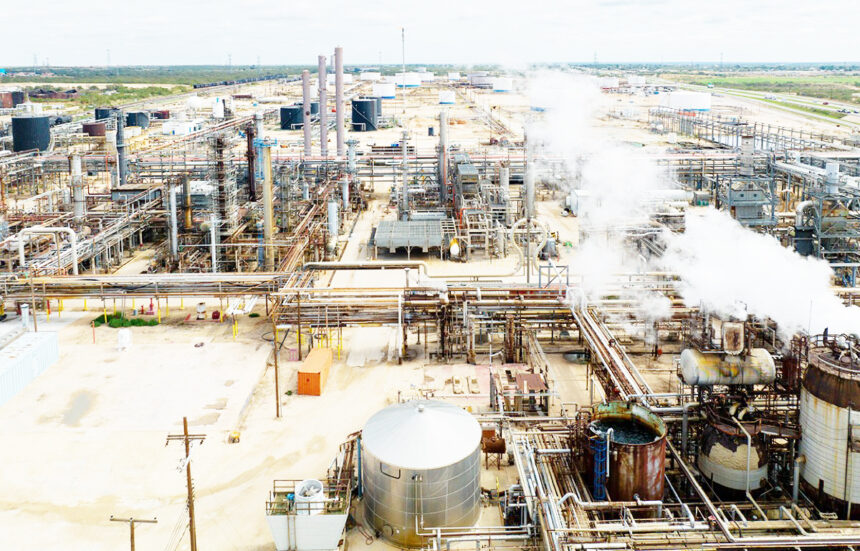Fully benefitting from any substantial oil discoveries made off the Namibian coast will entail refining the extracted raw material.
This means transforming raw crude oil into usable products, such as petrol, diesel or jet fuel.
It is achieved by separating and modifying the various components.
Refining oil is a crucial step for the petroleum industry because it converts the oil into more profitable and versatile fuels and chemicals.
However, the National Petroleum Corporation of Namibia (Namcor) has pointed out that Namibia does not have sufficient domestic demand to warrant the massive investment required to establish a refinery.
Paulo Coelho, manager for marketing, communication and public relations at the National Petroleum Corporation of Namibia (Namcor), said constructing a refinery in Namibia would require an investment estimated between US$3 billion and US$5 billion as well as the development of infrastructure, including pipelines and storage facilities.
He said constructing a refinery would require substant ial investment.
He added that Namibia still lacks several critical systems to support such a facility.
“Refineries only become technically viable with high throughput, typically in the range of 100 000 to 300 000 barrels per day. Namibia’s current domestic fuel demand is relatively low – at around 25 000 barrels per day,” Coelho stated.
He added that, at such low demand levels, a refinery would only be financially feasible if supported by long-term offtake agreements within the region.
In addition to limited demand, the lack of infrastructure and high capital costs present further obstacles to refinery development in Namibia.
Economic Association of Namibia’s Cons Karamata said its time for Namibia to begin discussions on establishing an oil refinery.
He said it is crucial to remember that the immediate priority is transitioning from exploration to production.
“It’s important to note that some African countries have taken decades to develop a refinery. Therefore, we should approach this as a long-term project. The conversation starts now, but the project will unfold over time,” said Karamata.
Namibia currently imports all its refined petroleum products.
Establishing a refinery would reduce dependence on foreign suppliers, improving energy security and stability in fuel pricing.
A refinery could create valuable jobs, both directly in operations and indirectly through supply chains, infrastructure development and services.
It could attract related industries like petrochemicals and manufacturing.
In a recent opinion piece, economist John Steytler said building an oil refinery could be a good idea.
“With Namibia anticipating substantial offshore oil discoveries, refining this resource domestically presents an opportunity to enhance revenue streams while reducing reliance on imported petroleum.
“Instead of merely exporting raw crude, a refinery would allow Namibia and Botswana to control upstream and downstream aspects of the oil industry. Shared investment in such a facility could make economic sense, provided its feasibility is carefully examined,” he noted.
His remarks came in light of President Netumbo Nandi- Ndaitwah and president Duma Boko of Botswana’s discussion of the possibility of a joint oil refinery, a move that could bring significant benefits to both nations.
“Considering the creation, investment and sheer ambition of building an oil refinery requires serious assessment on all fronts, including economic, social and environmental. This is where specialists come in and advise on the economic and financial realities of building an oil refinery in Namibia and Botswana,” Steytler noted.
President Nandi-Ndaitwah recently explored the idea of jointly establishing an oil refinery in Namibia to benefit the country and its neighbours like Botswana and Zambia.
She made these remarks in Botswana and Zambia last month during regional working visits. While in Botswana, Nandi-Ndaitwah and Boko agreed to pursue the feasibility of pooling resources for the joint construction of a refinery that would serve the needs of the two countries and the region. The President had a similar meeting with her Zambian counterpart Hakainde Hichilema.
The leaders agreed that such a refinery would benefit Namibia, Zambia and other regional markets.
Nandi-Ndaitwah first spoke about setting up the refinery at the Namibia International Energy Conference in April 2025.
She said setting up an oil refinery is part of Namibia’s efforts to maximise the economic benefit of the nation’s energy resources and promote local participation in the sector.
She said local content includes value addition, such as developing downstream capacity and vital infrastructure, such as a refinery.
-pmukokobi@nepc.com.na



